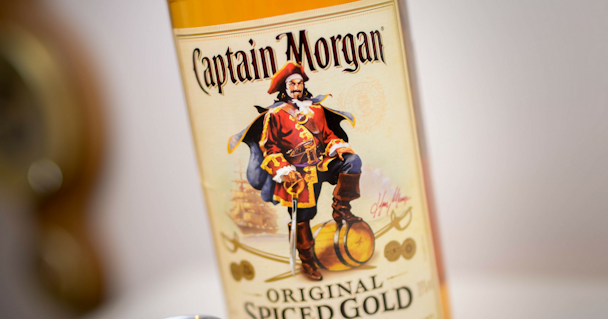Diageo pauses Snapchat spend after ASA questions efficacy of app's age verification policy
Diageo has paused advertising spend with Snapchat after the Advertising Standards Authority (ASA) banned a promotional lens from the alcohol giant for being likely to appeal to consumers under the legal UK drinking age.

The ASA lodged its own complaint about the brand's Snapchat campaign
According to the watchdog, Diageo-owned Captain Morgan flouted the guidelines around "inappropriate" targeting and appealing to under-18s via an interactive augmented reality overlay which let users transform themselves into its famous mascot.
As part of the judgement, the watchdog questioned the efficacy of Snapchat's age verification policy, which relies on users to self-report their own date of birth in the same way Facebook, Twitter and some alcohol brand's own websites do.
A Diageo spokesperson said: "We have a strict marketing code, take our role as a responsible marketer very seriously and acknowledge the ASA’s ruling. We took all reasonable steps to ensure the content we put on Snapchat was not directed at under 18s - using the data provided to us by Snapchat and applying an age filter."
“We have now stopped all advertising on Snapchat globally whilst we assess the incremental age verification safeguards that Snapchat are implementing.”
In a statement provided to The Drum Snapchat said it was "disappointed" with the ASA's decision, adding that since the campaign launched in July more options for age targeting have been made available for advertisers.
The lens, which ran in summer 2017, made users' faces look like Captain Morgan and depicted two glasses of a mixed alcoholic drink clinking together on-screen. Afterwards, a seagull flew a scroll on to the screen, before text read: 'Live like the Captain' to the sound of cheering.
The ASA implied that it didn't believe self-reporting of age to be a strong enough barrier to stop alcohol campaigns being served up to younger audiences. Despite Snap's targeting updates, it stated: "We considered that this [campaign] called into question the adequacy of self-reported age as the sole means of targeting alcohol advertising on Snapchat."
Snapchat caveated this by saying it also uses signals to confirm the accuracy of user-supplied information, including behavioural and interest-based data. Diageo, meanwhile, said that it ensured that all marketing communications appeared on social media platforms which counted a minimum of 75% of its audience as being aged 18 or over.
“We disagree that Diageo intentionally directed its Lens to an underage audience when it applied the accurate 18+ targeting available at the time," a Snap spokesperson said in light of the ruling.
The decision follows on from beer giant Heineken asserting last year that it perceived Snap's audience as being "too young" to target.
'Confident'
Data provided to Diageo by Snapchat indicated that in 2016 77% of all UK Snapchcat users were registered as 18 and over.
The ASA said that Snapchat had shared with it confidential first and third-party data about its UK audience; and that from Snap's response, the regulator understood that a "significant minority" of UK-based Snapchat users were registered as being between 13 and 17 years old.
At the same time, however, it cited separate research from Ofcom which showed that out of a group of 343 of children aged 12–15 years who had reported that they had a social media account, the proportion who said they had a Snapchat account increased from 51% in 2016 to 58% in 2017.
Further research undertaken by Ofcom in 2016 showed that out of a group of 104 of those aged 8–11 years who had social media accounts, 34% had Snapchat profiles.
This data did not give any indication of the age that these users claimed to be when they signed up, ie whether they had registered as 18 or over rather than providing their real age.
Snapchat said it believed this dataset to be unreliable and that the ruling was built around the assumption that Snapchatters were incorrectly stating their age. By its own calculations a maximum of 16.5% of its addressable audience in the UK was under 18 – below the Committee of Advertising Practice's (CAP) code’s 25% threshold for alcohol advertising.
"The ASA acknowledges the evidence we provided showing that ages supplied by Snapchatters are a robust way to age-restrict ads," Snap added.
The ASA also upheld the complaint on the ground that it thought the lens to be a "bright, child-like cartoon image" which was similar in style to the other icons for non-paid-for Snapchat lenses. Both Diageo and Snapchat disagreed with this.
The promotion must not be shown again in its current form.

